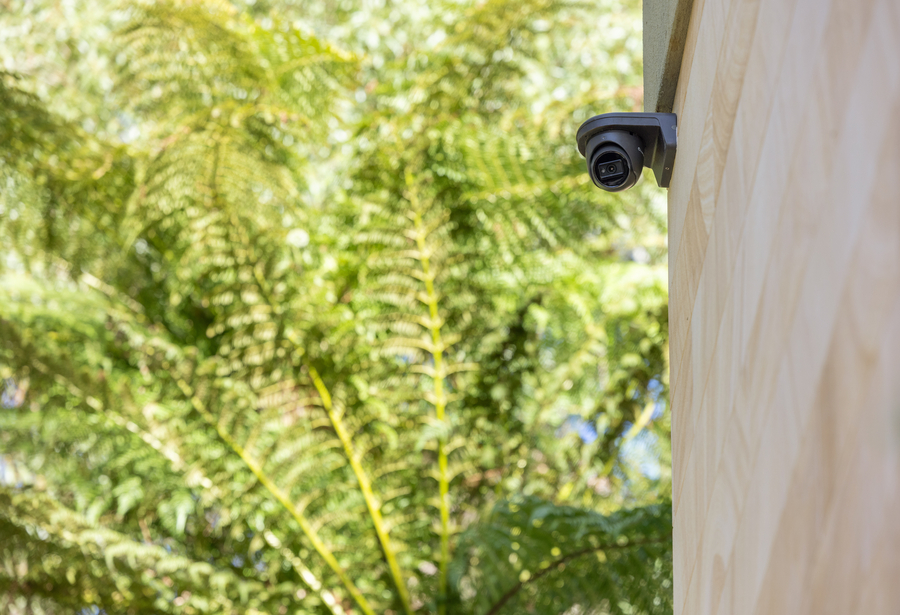Your Guide to Maximizing ROI on Security
Here’s What to Look for in a Professional Installation

Investing in a security system is one of the most forward-thinking, strategic decisions a homeowner or small business owner can make. Customized system design and installation protect your property, safeguard your assets, and deliver long-term peace of mind.
Yet, achieving that return on investment (ROI) depends on selecting the right security company and the right solutions tailored to your specific security needs. Spoiler: it requires more than simply choosing a few cameras or sensors and calling it a day.
A professional security installation performs reliably when it matters most. Use the following guide to evaluate projects and choose an installer that delivers real value.
MORE ON SECURITY: Integration is the Home Safety Edge
Step 1: Define Your Security Goals
Before comparing systems, identify what you want to achieve. For homeowners, that might include monitoring entry points, deterring break-ins, or managing remote access for family members or service providers. Business owners may prioritize 24/7 video surveillance, access control, or audit trails for compliance.
Establishing clear goals helps guide recommendations and prevents unnecessary spending on features that don’t fit your needs.
Ask yourself:
- What are my biggest safety concerns?
- Do I need both indoor and outdoor coverage?
- Who needs access to the system?
- How will I monitor activity when I’m away?
Step 2: Evaluate Professional Expertise
Every installation starts with a qualified, experienced integrator who implements your security plan with expertise and professionalism. Look for a provider like Dijis, known for expertise across alarm systems, video surveillance, and automation.
Professional installers bring more than technical skills to the table. They understand system design, network configuration, and how to integrate technology with the aesthetics of your home or office. Ask about certifications, brand partnerships, and examples of past work in properties similar to yours.
Expert tip: Choose an installer who specializes in integrated systems rather than standalone devices. A connected approach enhances reliability and scalability, resulting in improved long-term ROI.
Step 3: Compare System Design and Customization
Every property has unique protection requirements. A security design that works for a retail storefront may not be suitable for a coastal Lake Bluff residence, and vice versa. Integrators evaluate architecture, lighting, cabling infrastructure, and more before recommending equipment.
Custom design allows for:
- Optimized camera placement for property-wide coverage
- Scalable monitoring zones and sensor layouts
- Discreetly installed solutions that complement your décor
- Integration with lighting or HVAC systems for energy efficiency
Step 4: Review Equipment Quality and Compatibility
ROI depends heavily on performance and longevity. Ask your installer to specify hardware brands and explain compatibility with your existing systems.
Checklist for evaluating equipment quality:
- High-resolution cameras with low-light and weather resistance
- Smart alarm panels with encrypted communication
- Reliable backup power for critical components
- Secure Wi-Fi networking solutions to support all connected devices
Choosing reputable equipment minimizes maintenance issues and ensures long-term support for future upgrades and security patches.
Step 5: Assess Monitoring and Support Options
A well-installed security system still requires strong ongoing support. Professional monitoring ensures rapid emergency response, while proactive maintenance prevents downtime.
Ask potential installers:
- Who provides the monitoring service, and how quickly are alerts verified?
- What maintenance plans or warranties are included with the purchase?
- Is remote technical support available?
Reliable support transforms a one-time installation into a long-term investment.
Step 6: Understand Integration and Scalability
Integrated systems provide more value than isolated devices and a siloed system. When security, lighting, and automation share the same platform, they enhance safety and convenience.
For example, an alarm trigger can automatically turn on outdoor lights and record footage, while mobile access lets you verify events from anywhere. Professional integrators ensure all of these technologies communicate effectively, future-proofing your investment as new solutions emerge.
FAQs: Choosing a Professional Installer
Q: Why is professional installation better than DIY?
A: Professional installers coordinate proper wiring, configuration, and network setup before ever installing a camera. A strategically designed security setup helps reduce false alarms, blind spots, and equipment failure.
Q: How can I measure ROI on my system?
A: ROI is reflected in lower insurance costs, faster response times, reduced losses, and increased property value.
Q: How often should my system be updated?
A: Most systems remain effective for several years, but periodic software updates and hardware checks keep performance optimal.
Commercial & Home Security Matters at Dijis
A security and surveillance system installation offers protection and peace of mind that off-the-shelf systems can’t match. Defining goals, choosing expert installers, and prioritizing integration are key to maximizing your ROI.
For homeowners and businesses across the North Shore, Dijis helps keep properties safe and connected.
Schedule a consultation to discuss your security project today.


